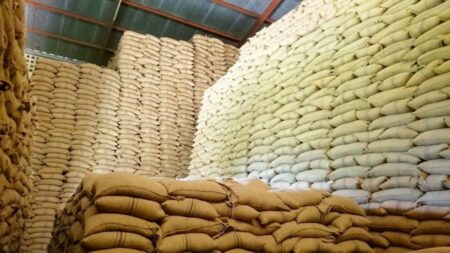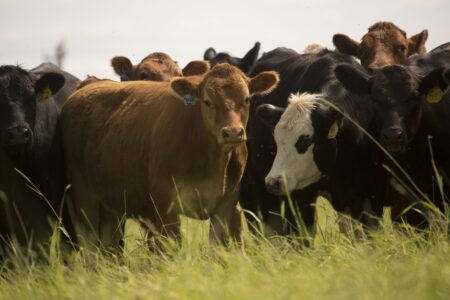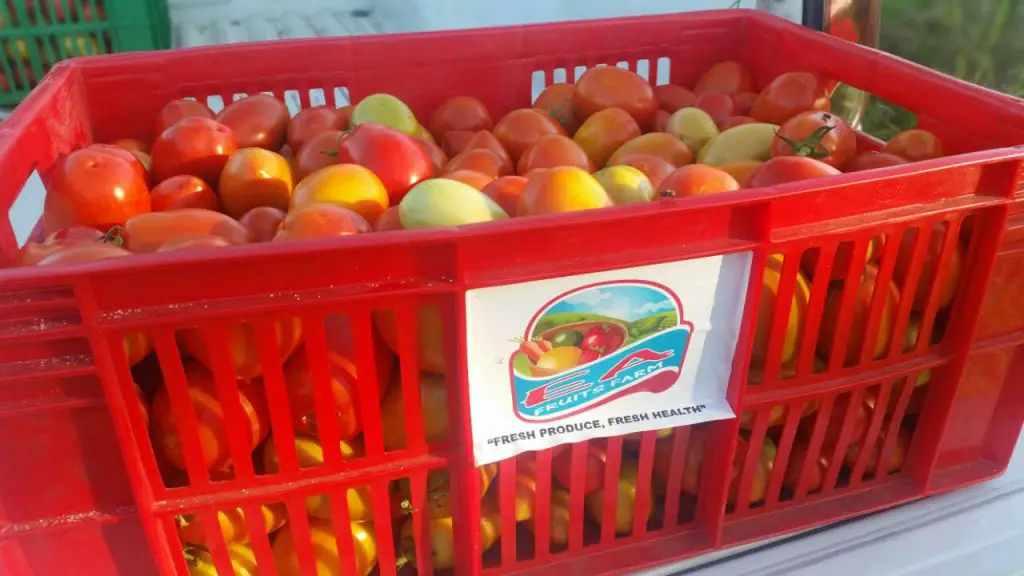- Africa’s new dawn: the rising role of digital and AI in agriculture
- Can Dangote Refinery Transform Africa Energy Ambition
- Gallup Survey: 80 per cent of Kenyan Workers Are Disengaged and Seek New Opportunities
- Madagascar Man Freed from 5KG Tumor After 15-Year Struggle
- How women in Africa are perceived and treated
- Sugar consumption in Kenya to Increase to 1.23 Million Tonnes
- Can Somalia and Turkey Oil deal Bring Change in Somaliland
- Remittances to Kenya dropped to $371.6 million in June, marking a six month low
Browsing: Agribusiness in Tanzania
- While Tanzania has imposed restrictions on grain exports, Kenya has prohibited the import of various grains.
- These ongoing grain import bans are strategies set to tame the escalating food inflation in the region.
- However, the import ban on wheat and maize will negatively impact Tanzanian traders who rely on the Kenyan market.
Kenya and Tanzania, two countries renowned for their evergreen grain trade, are now wielding the ban hammer on grain imports. This unexpected twist in the tale stems from a compelling synergy of motives—protecting local farmers reveling in bumper harvests and quelling the waves of food inflation.
As we delve deeper into this intriguing narrative, we will uncover the captivating dynamics at play, exploring the economic, agricultural, and geopolitical forces that have orchestrated this harmonious yet complex symphony of trade regulation.
Kenya and Tanzania deploy grain imports/exports ban
While Tanzania has imposed restrictions on grain exports, Kenya has prohibited …
- Tanzania, a country with a total area of 947,300 km², is home to Africa’s second-largest cattle herd.
- Meat exports constitute about 7.1 percent of the East African country’s GDP.
- With eyes on higher revenues, Tanzania aims to produce 10,000 tonnes of meat annually by 2025.
With a big herd and stakes high in the international food markets, Tanzania has set her eyes on ambitious plan of shipping 10,000 tonnes of meat exports annually by 2025. Whereas Tanzania is home to Africa’s second-largest cattle herd, the country has been punching below its weight.
Currently, Tanzania is not one of the top meat and milk producers in the continent. The country’s situation syncs with FAO’s observation that there is no correlation between the size of cattle herds a country owns to its beef exports.
Relation between cattle herds and meat exports
In terms of the size of livestock in Africa, the Food …
- Tanzania launches Youth Guarantee Scheme and Loan Facility
- Special scheme to give 11,000 acres to its youth for agriculture
- Youth empowerment initiative to be overseen by the Agricultural Input Trust Fund
Tanzania is giving land to the youth to boost agricultural productivity and create employment.
While speaking at the Africa Food Summit in Dakar, Senegal, Tanzania President Samia Suluhu Hassan announced that the state will give 11,000 acres to it’s youth for agricultural production.
Suluhu explained that the decision is part of the country’s ‘Building a Better Tommorrow’ (BBT) initiative. Through a special programme, the Tanzanian government has announced that it will give qualifying youth access to land ownership as part of the country’s ongoing initiative to secure economic empowerment for its youth, the largest part of its population. (santaritalandscaping.com/)
The move is part of an ongoing national agricultural development initiative that is meant to develop the sector …
East Africa Fruits, an innovative social enterprise that supports smallholder farmers in Tanzania through the trade and marketing of fresh produce and grains, has recently been named a Certified B Corporation.
The company joins a global community of almost 3,000 businesses working in 150 industries in more than 60 countries for this prestigious recognition.
Certified B Corporations are businesses that meet the highest standards of verified social and environmental performance, public transparency, and legal accountability to balance profit and purpose.
As consumers increasingly demand that businesses use their influence as a force for good, Certified B Corporations are at the forefront of purpose-driven entities that are finding sustainable solutions to some of the world’s most pressing problems and redefining financial success in the global economy.
“Earning B Corp status is such a distinctive honor for our team,” said Elia Timotheo, Founder and Managing Director of East Africa Fruits. “As a …








